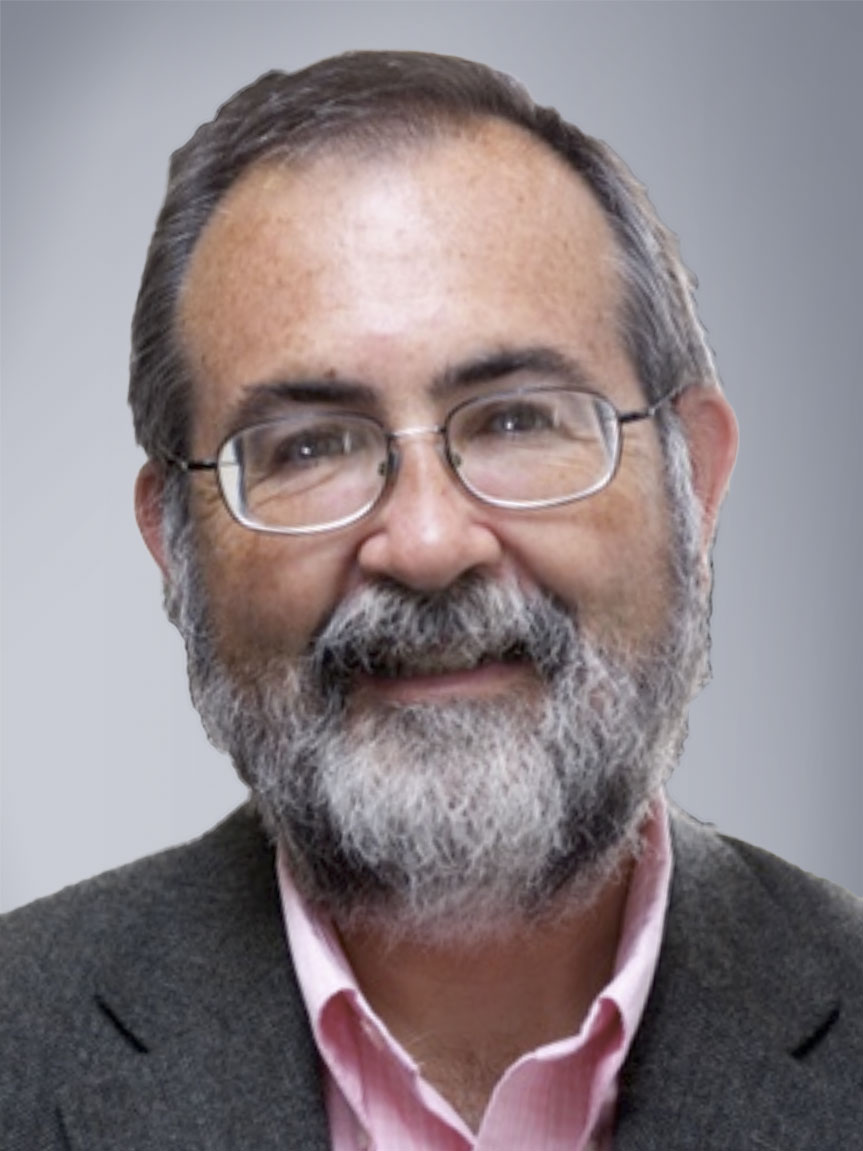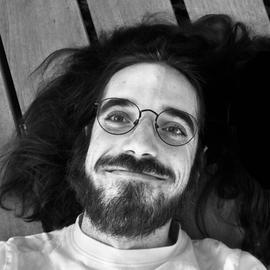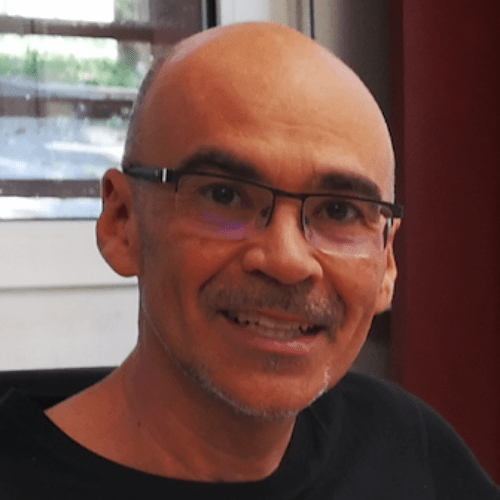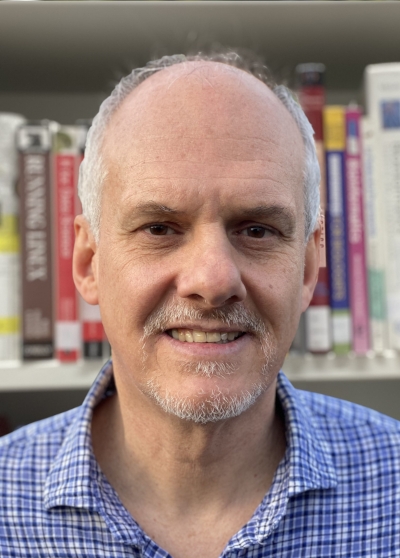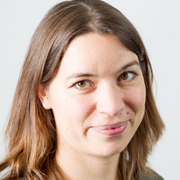18th Granada Seminar
New Tools and Methods for Complex Systems Research: from molecules to living and intelligent systems.
SPEAKERS
Resume:
Professor H. Levine is an University Distinguished Professor in Physics and Bioengineering at Northeastern University (US). He is also co-director of a National Science Foundation Physics Frontier Center devoted to theoretical biological physics. He is Member of National Academy of Sciences, Member, American Academy of Arts and Sciences, Fellow of the Alfred P. Sloan Foundation Research and Fellow of the American Physical Society
His main research lines are the physical modeling of cancer progression, metastasis and interaction with the immune system. Most recent interests include the role of metabolic plasticity in these processes and the co-evolution of the tumor and the adaptive immune system. Other areas include spatial organization of the actin cytoskeleton, the mechanics of collective cell motility, and the analysis of genetic circuits involved in cell fate decisions.
Resume:
I am a full professor in the department of Data Analysis at Ghent University (Belgium). Following my training as a statistical physicist, I investigate dynamics and structure of complex systems. The research that I carry on with my collaborators ranges from theoretical and computational physics to methodological and computational aspects of neuroscience research and experimental neurophysiology.
I am Deputy Editor at PLOS Computational Biology, Co-Editor-in-Chief at Neurons, Behavior, Data analysis, and Theory, and academic editor at Network Neuroscience, NeuroImage, Brain Topography. I am the representative of Ghent University in EBRAINS.
Resume:
Dr. P. Mediano is Lecturer in Computing at the Department of Computing- Faculty of Engineering at Imperial College London. His main research lines are partial information decomposition, complexity theory, altered states of consciousness, philosophy of consciousness, integrated information theory, information theory in neuroscience and information theory in machine learning.
Resume:
Miguel A. Muñoz is Full Professor in Physics at the University of Granada (Spain). He is an expert in statistical mechanics and has worked, among other issues, on non-equilibrium phase transitions, critical and collective phenomena and stochastic processes. In particular, he contributed to developing theory of “self-organized criticality” and helped developing approaches to the study of non-equilibrium phenomena, network theory and complex systems. His research interests spans from fundamental principles of statistical mechanics to interdisciplinary problems in evolutionary biology, theoretical ecology, and systems neuroscience.
Resume:
Dr. Enrique M. Muro is a tenured principal investigator at the Institute of Organismic and Molecular Evolution at the Johannes Gutenberg University Mainz. He works as a computational biologist and bioinformatician with a background in neural computation and computational physics. His work focuses on genome and proteome evolution. Over the past few years, he has made significant progress in quantifying how life’s genetic architecture was transformed during eukaryogenesis, showing that the eukaryotic cell emerged abruptly as an evolutionary algorithmic phase transition [1]. Additional research areas include pseudogene evolution, retrotransposons, the 3D architecture of chromatin, and transcription. He is active in science outreach and is passionate about interdisciplinary teamwork.
References,
[1] Muro EM, Ballesteros FJ, Luque B, Bascompte J. The emergence of eukaryotes as an evolutionary algorithmic phase transition. Proc Natl Acad Sci U S A. 2025 Apr;122(13):e2422968122. doi: 10.1073/pnas.2422968122. Epub 2025 Mar 27.
Resume:
My work focuses on the analysis of distributed complex systems, addressing problems at the interface between computational neuroscience, complexity science, and machine learning. In general terms, my work aims to reveal the fascinating principles that drive the computations performed by distributed multi-agent systems: how can they become more than the sum of their parts, perform tasks collectively that couldn’t be achieved individually, and even give rise to novel features that were not predefined beforehand. These are exciting times to pursue these questions, as theoretical approaches can now be complemented by empirical investigations based on big data.
On the theoretical side, my research focuses on formulating novel mathematical frameworks based on foundational but elusive intuitions about how information is processed in distributed resource-constrained systems, which in turn lead to algorithms that enable new avenues of practical data analysis. My vision is that such analysis frameworks, which go beyond mere data fitting to truly reveal the inner workings of complex distributed systems, will be instrumental for future scientific advancements and technological breakthroughs. I am particularly interested in the potential of these tools to deepen our understanding of the inner workings of the human brain, and also our understanding of social scenarios involving collective experiences. I strongly believe that insightful science can lead us to a better world where humans are empowered by novel technologies that provide means for them to thrive and foster their creativity and well-being.
Resume:
Dr. Edina Rosta is a Professor of Molecular Modelling at UCL. After completing her PhD at USC in the group of Arieh Warshel (2013 Chemistry Nobel Prize Laureate), she joined the Hummer lab as a Postdoctoral Research Fellow at the NIDDK, NIH. She took up a lecturer position at KCL Chemistry in 2012. In 2020 she joined UCL Physics. Current research in her group focuses on atomistic modelling, including hybrid quantum mechanics/molecular mechanics (QM/MM) simulations. To quantitatively and accurately assess how enzymes achieve their extraordinary efficiency and specificity in performing chemical reactions, she develops modern enhanced sampling methods including novel algorithms to calculate molecular kinetics from biased molecular simulations using the theoretical framework of kinetic networks and machine learning tools. Biological applications aim at understanding and molecular design concerning the most prominent chemical reactions of living organisms: phosphate transfer and cleavage.
Enhanced Sampling Simulations of Biomolecular Systems
Important biological functions of biomolecular systems, such as catalysis, large-scale conformational changes, or ligand unbinding are often out of reach of atomistic molecular simulations. Enhanced sampling algorithms proved essential to mapping the pathway for these processes. However, the selection of collective variables is generally highly challenging.
Here, we present algorithms [1,2] that enable the identification of ligand unbinding pathways and pave the way for the calculation of unbinding free energy profiles. On one hand, we can determine kinetically optimal bias using mean first passage times [2] to observe biomolecular pathways. On the other hand, without a priori defining CVs, we can identify useful atomic distances to map the unbinding pathway [1]. Subsequently, the finite-temperature string method is used to calculate the free energy barrier and obtain an estimate of the off rate.
However, the key variables that determine the transition state (TS) are not necessarily obtained. To enable the identification of the most important CVs that play a major role at the TS, we developed a general machine learning (ML) approach, applicable to any molecular processes. We generate short downhill trajectories initiated near the TS and train ML networks to predict the trajectory outcomes. These trained networks are subsequently used to pinpoint the most relevant CVs at the TSs.
Our calculations are applied to drugs targeting CDK2 [1] and the M3 muscarinic acetylcholine receptor [3]. We hope to provide key molecular features that help design inhibitors based on their allosteric and kinetic properties.
References
[1] M Badaoui, PJ Buigues, D Berta, G Mandana, H Gu, T Földes, C Dickson, V Hornak, M Kato, C Molteni, S Parsons, E Rosta, J. Chem. Theory Comput., 18, 2543-2555 (2022)
[2] T Wei, B Dudas, E Rosta, “Kinetics-Optimized Enhanced Sampling Using Mean First Passage Times”; arXiv:2406.08964
[3] PJ Buigues, S Gehrke, M Badaoui, B Dudas, G Mandana, T Qi, G Bottegoni, E Rosta, “Investigating the Unbinding of Muscarinic Antagonists from the Muscarinic 3 Receptor”, J. Chem. Theory Comput., 19, 5260-5272, (2023)
Resume:
Roberta Zambrini is a CSIC senior scientist at the Institute for Cross-disciplinary Physics and Complex Systems (IFISC) in Mallorca, Spain. Her research focuses on complex quantum systems, quantum optics and quantum machine learning. She has published more than 90 articles in international journals, coordinated multiple projects including two European, five national and two regional projects. At present she is also guarantor of the center of excellence of IFISC (Maria de Maeztu). She has been active in dissemination initiatives, ranging from activities for the general public to specialized events, and is part of the initiative Woman for Quantum. In 2020 she lead the CSIC white paper on Digitalization. She has been manager of a the Spanish Research Area AEI (2021-2024) in the Physics Area and is associate editor of Physical Review Letters.
